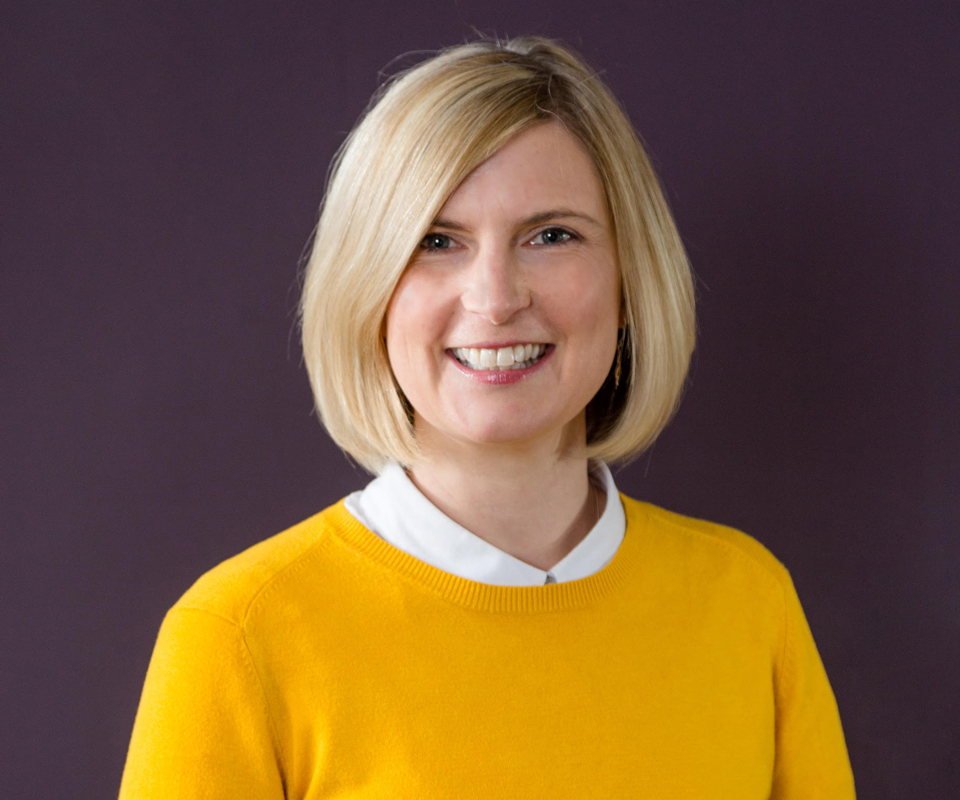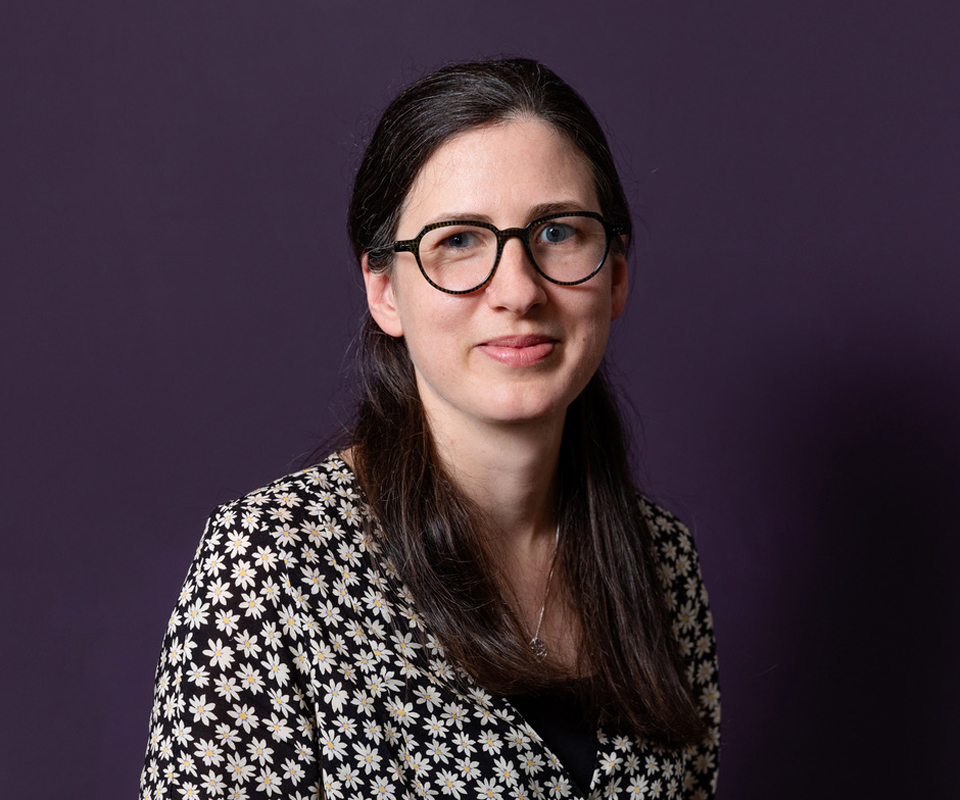- OT
- Life in practice
- Career development
- Keep on learning, don’t stop
The discussion
Keep on learning, don’t stop
OT speaks to optometrists about lifelong learning and the benefits it brings them

25 September 2019
It can be said that learning only truly begins after you qualify. Whether you agree with this statement or not, for optical professionals, education is a continuous journey throughout their career as they complete continued education and training (CET), learn how to use new equipment in an ever-changing environment, and enroll on courses that enable them to offer enhanced services.
Some learning is compulsory, and some is not, yet there are many benefits that come with lifelong learning. OT has spoken to two practitioners about the additional learning they have undertaken and why.
Optometrist Gillian Bruce qualified in 2001 and working in High Street practice remembers feeling early on that there was no obvious path for her to take to enhance her career beyond what she was doing immediately after qualification. “It felt like once you had passed your PQEs you were as qualified as everyone else and your career path was set,” she told OT. “I remember thinking that it was a shame as I would have liked to identify a route and potentially upskill in an area of interest,” she added.
Through continual learning and upskilling you feel more engaged in your work and ready for opportunities to expand your practice rather than daunted by potential change
It was a number of years later that an opportunity presented itself to Ms Bruce in the shape of the then newly established independent prescriber (IP) qualification.
Ms Bruce enrolled on the IP course in 2008, completing the first year before subsequently taking some time out of the profession to travel. On her return to the UK she joined Cameron Optometry, a practice based in Edinburgh which has an emphasis on enhanced eye care.
“There was a lot of acute eye care services work being performed at the practice and at the time it became quite a driver for me upskill in that area and get the IP qualification,” she shared.

After her IP qualification, Ms Bruce jumped directly into a Master’s in primary care ophthalmology, a distance learning qualification that is run at the University of Edinburgh.
She admits that the course was more demanding time-wise than she initially anticipated and paused her learning after a year due to the demands of family life.
When Ms Bruce was better prepared to meet its requirements, she resumed the course and qualified last year.
As a person who “really likes learning,” this year Ms Bruce has completed the first module of the professional certificate in paediatric eye care at Cardiff University.
For Ms Bruce, continuous learning enables her to remain interested and motivated in the profession that she has been practising in for 18 years.
She selects qualifications where she will learn skills that she can use and implement in the practice she works. “It is about ensuring that I am at a particular skill level, while focusing on something that I am interested in and that I will be able to implement in practice,” she said.
“Additional qualifications are a commitment and if you enjoy the subject then it is far easier to complete it,” she emphasised.
Earlier this year, optometrist Rebecca Daly joined Cameron Optometry and currently balances her week working part-time alongside Ms Bruce and part-time at the University of Dundee.
Having qualified in 2004, the first further education Ms Daly completed was training to become a peer facilitator directly after the enhanced CET scheme was introduced by the General Optical Council in 2013. Today she also holds an IP qualification, an MSc in primary care ophthalmology and a certificate in medical education.

Ms Daly believes further education can benefit all practitioners due to the isolation that they can experience in practice. “A risk analysis by the GOC a few years ago identified isolation as a risk and I do feel that further learning can help to combat this,” she said.
Further learning provides Ms Daly with confidence in practice. “It gives me confidence to know that my knowledge and skills are up to date. Plus, when a patient asks me a question I have the skills required to be able to look it up and get back to them if I don’t know the answer immediately.”
Ms Bruce highlighted that continued learning enables her to uncover areas that she is good at while also highlighting topics that she previously may not have known she had an interest in.
Nowadays it is becoming more and more important for practices to standout from the crowd and offer a wide scope of practice. Having a skilled workforce enables practices to do that
In business
As well as benefits for the practitioner, Ms Bruce and Ms Daly concur that there are also business benefits that come with additional qualifications. “Nowadays it is becoming more and more important for practices to stand out from the crowd and offer a wide scope of practice. Having a skilled workforce enables practices to do that,” Ms Daly explained.Ms Bruce has also observed how having a skilled workforce has positively impacted on patient retention at Cameron Optometry. “Being able to offer patients a comprehensive service that they cannot find elsewhere means loyalty among patients is high,” she said.
It also means that the practice has to refer out into the community a lot less, meaning that risk of losing patients to a competitor is decreased, Ms Bruce added.
Words of wisdom
Sharing advice for practitioners who are considering further learning, Ms Bruce emphasises that it can at times be hard to maintain a work/life balance with study so it’s important to opt for the right thing at the right time.
“Choose carefully and thoroughly research what is involved before signing up to a new course,” she advised. “Course organisers and people who have done the qualification before will give you a real insight into the time and effort involved,” she added.
Acknowledging that the profession is rapidly evolving at present, Ms Bruce encouraged: “Through continual learning and upskilling you feel more engaged in your work and ready for opportunities to expand your practice rather than daunted by potential change.”
Back to school
Last year, dispensing optician and independent practice owner, Nick Singfield, decided to return to education and retrain as an optometrist.
While the prospect of going back to school was initially daunting, one of the main reasons behind Mr Singfield’s decision to retrain was the opportunity that it would bring his business.
Mr Singfield has opted to retrain through the University of Bradford’s 18-month BSc (Hons) career progression programme, a course he enrolled on in January this year. He has now successfully completed the required six months distance learning of the course and earlier this month enrolled as a student full-time.
Speaking about his journey so far, Mr Singfield told OT: “It’s something that I have wanted to do for a long time and I have thoroughly enjoyed learning again.”
“I knew it would be a lot of work, but it has amazed me how hard it has been. I have been in this profession for years and I really hadn’t realised the full extent of what goes on in the consulting room – I have a great admiration for optometrists,” he added.
The journey
Mr Singfield qualified as a dispensing optician in the 1980s and spent time working in full-time practice before gaining practice management experience with Dollond & Aitchison and Four Eyes Opticians.
In 1993, he went into business with a school friend and opened his first independent practice in Chiswick, West London. A second practice followed in Fulham in 2011.
Mr Singfield explained that since opening practice doors, the business has relied solely on locum optometrists in the testing room. He highlighted that while this has operated well “the cost has been high and we have noticed how our patients like consistency in the practitioner they see.”
Over the years, Mr Singfield has dipped his toes back into learning having completed contact lens training in 2000. However, shortly afterwards his time became dominated with business management and “the additional qualification fell by the wayside.”
For Mr Singfield now seemed the right time to return to education. “I have got to the stage where my kids are older and me disappearing to Bradford for a year is not going to have a big impact on their lives like it would have five years ago.”
Speaking about his learning to date, Mr Singfield admits: “Over the last seven to eight months, I have spent the majority of my evenings and weekends studying.”
However, he is clear that the short-term sacrifice is worth the long-term gain. “Learning is very rewarding and I am thoroughly enjoying it,” he said.
Acknowledging that the profession has changed a lot since he joined it over 30 years ago, Mr Singfield believes that enhanced patient care and services is the area where independents on the High Street can shine and this is something he looks forward to advancing into on qualification.
“What I am most looking forward to is getting into the consulting room, looking after patients and doing it my way,” Mr Singfield shared.
Being a dispensing optician, come business owner, come optometrist will make Mr Singfield somewhat of a unqiue practitioner. “I will understand and be able to cover every and any element of the business,” he added.
Reflecting on the notion of lifelong learning, Mr Singfield concluded: “It’s definitely worth it. Retraining has given me so much more passion for the profession and the job. It has really given me so much more enthusiasm. I am enjoying the job so much more now than I have done for years.”
Image credit: Getty/Feodora Chiosea
Advertisement


Comments (0)
You must be logged in to join the discussion. Log in